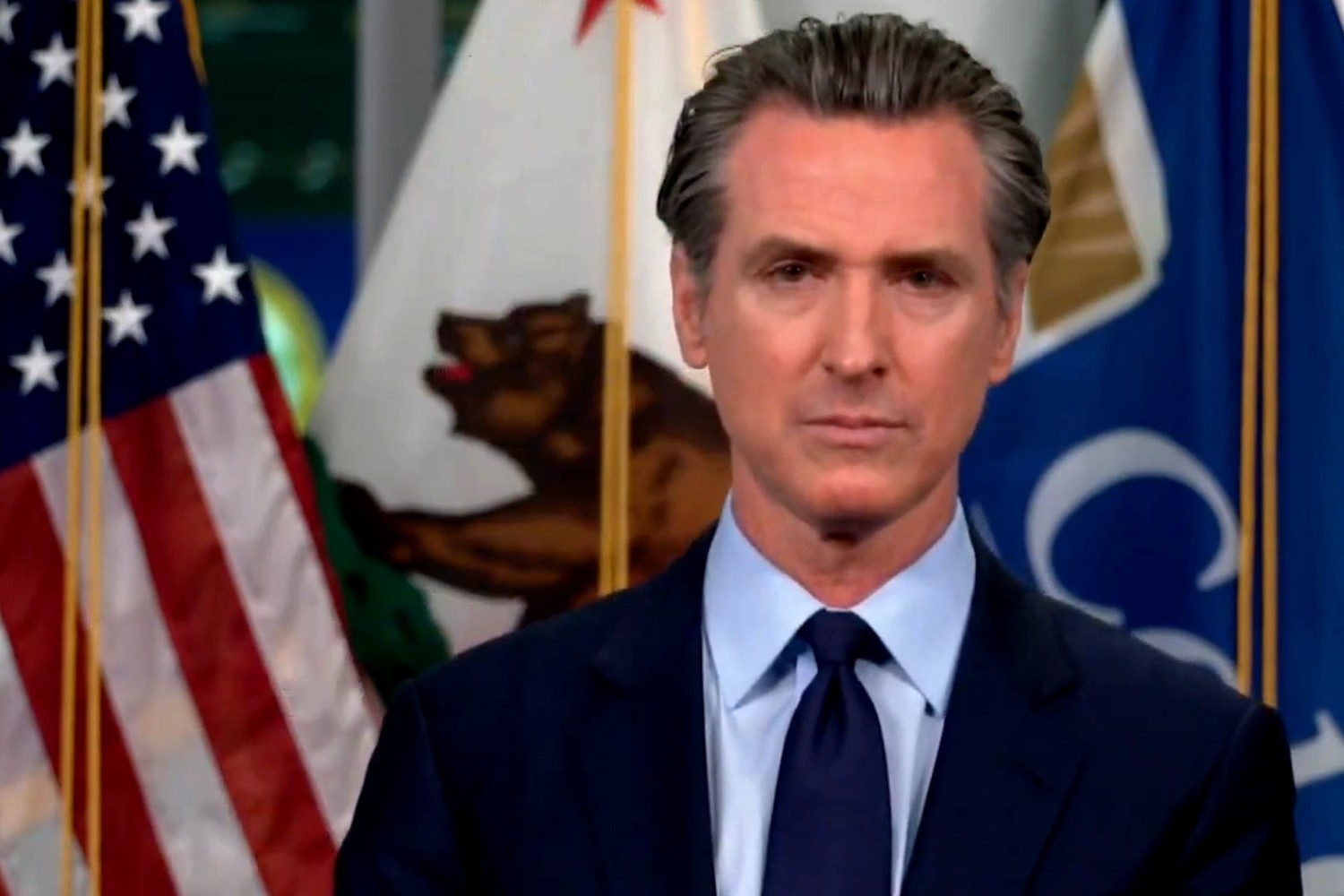

Beginning Thursday, Californians will have the option to receive smartphone notifications if they’ve been exposed to someone who has tested positive for the novel coronavirus.
California on Monday announced the public rollout of an app to support the state’s COVID-19 contact tracing efforts. Called CA Notify, the app relies on a tech framework created by Apple and Google that uses Apple and Android phones’ short-range Bluetooth radios to determine when two devices have been near one another for more than 15 minutes.
The tool arrives seven months after the tech giants released the digital interface and Gov. Gavin Newsom said it would be key to supporting California’s contact-tracing efforts. It comes as California’s coronavirus hospitalizations have surged past 10,000, making this wave of infections the largest to date.
“This holds a lot of promise,” Newsom said at a news conference Monday. “The more people that participate in it, the more that opt in, the more effective this program can be.”
However, Newsom said he didn’t want to “overstate” the utility of the app: In order for it to have a profound effect, many Californians would need to use it.
Here’s what you need to know:
How does it work?
When users of the app test positive for COVID-19, they will receive a text notification from the California Department of Public Health with a code to input.
Those whose phones have been in proximity to the phone of the infected person within the previous two weeks will receive exposure alerts.
The idea is to identify exposed individuals early, allowing them to quickly quarantine. In a pilot program involving an estimated 250,000 students, staff and faculty at seven UC campuses earlier this fall, the system proved effective, Dr. Christopher Longhurst, chief information officer at UC San Diego Health, said in a statement.
Tech companies, California officials and health experts point out these types of tools are no substitute for other measures to prevent transmission, including distancing, mask-wearing and interview-based contact tracing.
Can I opt out of using the app?
Yes. Californians voluntarily activate the app. There is no requirement that you use it.
Newsom underscored this point in Monday’s news conference, aiming to get out ahead of privacy concerns that could deter use of the platform.
“It’s 100% private, 100% secure, 100% voluntary. You opt in, or you choose not to,” he said.
What are the privacy implications?
Minimal. Safeguards proposed by Apple and Google won cautious approval from privacy advocates such as the American Civil Liberties Union (though the organization has remained skeptical overall of the need to use apps for exposure notification.)
Data stay anonymous because mobile devices in proximity to one another only exchange randomly generated strings of numbers — keys that rotate frequently to prevent tracking a device over time. Data are stored on the user’s device only 14 days, after which it is automatically deleted.
Has the technology worked in other states?
In the dozen-plus states where the technology has been made available so far, encouraging enough people to sign up has posed a huge hurdle.
Preliminary research by a team at Oxford University’s Nuffield Department of Medicine projected that 15% uptake of an exposure notification system in Washington state (combined with manual contact tracing efforts) could reduce infections by 15% and deaths by 11%.
Data from Nevada show how tough it is to reach that level of adoption. On Aug. 24, Nevada’s Department of Health and Human Services launched exposure notification app COVID Trace to its 3 million-plus residents. By Nov. 9, the app had been downloaded less than 70,000 times — or just under 3% of the state’s adult population, according to Time magazine.
How can I activate the CA Notify app?
Californians with Android phones must download the app from the Google Play store once it’s available Thursday, and check to make sure their device’s Bluetooth is on.
Users of iPhones running iOS version 13.7 or later can enable notifications without downloading anything by opening “Settings,” scrolling down to “Exposure Notifications,” selecting “Turn On” and setting California as the location.
Times staff writer John Myers contributed to this report.
